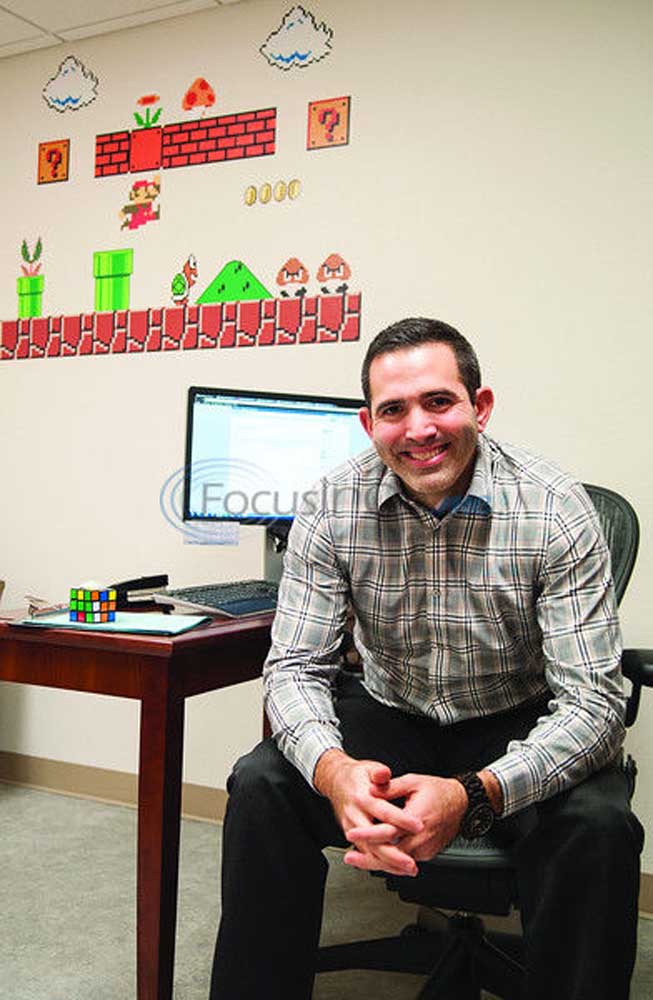No quick fix for shortage of psychiatrists in East Texas
Published 9:16 pm Saturday, December 5, 2015

- Dr. Richard Idell is an adolescent psychiatrist working at UT Health Northeast in Tyler. He sees patients as young as age three. (Sarah A. Miller/Tyler Morning Telegraph)
Across the country, there is shortage of psychiatrists and East Texas is no exception. Texas health officials see no quick fix in sight. According to Texas-based consulting firm Merritt Hawkins, there are 185 counties out of 254 Texas counties without a psychiatrist. This includes Rusk and Wood counties.
Henderson, Upshur and Van Zandt each have one psychiatrist, according to the most recent Texas Medical Board records. Anderson County has three, Gregg has 10 and Cherokee has 18. Smith County counts the most in the region, at 23.
Most, if not all psychiatrists in Smith County are concentrated in Tyler, with most practicing at UT Health Northeast, East Texas Medical Center’s Behavioral Health Center and the Andrews Center.
Dr. Jeffrey Levin, senior vice president for clinical and academic affairs at UT Health Northeast, notes that some areas in East Texas have one provider for 25,000 people.
“That shortage is seven times greater than the state average,” Levin said. “We have problems locally, but also in our state hospitals, in recruiting enough mental healthcare professionals.”
Dr. Clifford Moy, with the Texas Medical Association House of Delegates, said it would take 1,100 psychiatrists and 200 more child psychiatrists to bring Texas up to the national per capita workforce totals.
That would mean a 70 percent increase in the total number of psychiatrists and a 46 percent increase in the umber of child psychiatrists.
Every demographic is impacted by the shortage.
“Even people with money can’t get in to see a psychiatrist in Tyler,” said Doug McSwane, whose son, Patrick, died by suicide in 2012.
“We were seeking specialists and there just wasn’t an availability of a lot of specialists we could go to. There’s just not a lot of resources right now.”
Fonda Latham, chief executive director at Samaritan Counseling Center, also notes that with Dallas nearby, there still aren’t many options.
“I have a list of six people to refer patients to in Dallas,” she said. “None of them are taking new clients. I don’t have a place to refer people to right now.”
Meanwhile, family doctors pick up the slack by necessity, addressing immediate mental health needs and writing prescriptions.
While a shortage remains, there is some growth in child and adolescent psychiatry. According to a Texas Medical Association report, the number of child psychiatrists in Texas increased by 17 percent between 2007 and 2012.
“Child and adolescent psychiatry has been experiencing rapid growth since the 1990s and Texas did a really good job in increasing the number of child and adolescent residency positions in Texas,” Moy said. It’s good news, but the growing older population may call for more doctors to specialize in geriatric psychiatry.
“We do have an aging workforce which also causes some concerns,” Moy said.
Dr. Richard Idell, a child psychiatric who sees children as young as 3, said the reason for the growth in pediatric psychiatry might stem from realizing the need to provide treatment sooner.
“More people are being exposed to the idea that the earlier you intervene the bigger impact you have on family and the better the outcomes are for the patient,” he said.
NO INCENTIVES
Medical school class sizes are increasing, but there are fewer medical school students selecting psychiatry as a specialty. Doctors tend to stay within 100 miles from where they train, Moy said. It’s why it’s important to have residency programs here that attract physicians. UT Health Northeast officials are trying to make that happen now.
“Starting a psychiatry residency program, which is projected to be online in 2017, makes it more likely that they will stay in this area when they complete their training,” Levin said.
Elected officials are also trying to find ways to attract doctors to the field. In this last state legislative session, Sen. Charles Schwertner sponsored a bill, which provides student loan repayment for mental health professionals working in underserved areas. It went into effect Sept. 1.
Moy said it’ll help, but it may take more than money to entice more psychiatrists. He said ancillary support similar to what medical doctors have would be helpful.
“It’s creating an atmosphere that is rewarding for the psychiatrists,” he said. “That is something that the community can add to meet the needs of patients … Money is not enough to recruit.”
As hospital systems try to integrate mental health services with medical care, the way doctors treat patients is evolving. Idell said there is a focus on mindfulness stress reduction, which is beneficial for post-traumatic stress disorder and other conditions.
But how patients pay for treatment is still an issue without an easy solution. For ongoing outpatient care, few psychiatrics outside of the hospital setting accept insurance because reimbursement rates are much lower for mental health services.
Moy said in Austin, about half of the psychiatrists don’t take any type of insurance. For those who cannot pay in cash, they go to a community mental health center or a federally qualified health clinic. Some end up in the emergency department.
“Medical practice is not market based because Medicare has a fee schedule,” Moy said. “There is no negotiating with Medicare. You have to take what they pay. Most insurance is based on Medicare pay.”
FINDING A HOME
Anticipating its psychiatry residency program UT Health Northeast officials easily recruited him Idell, 32.
The Tyler native chose the field because he was impacted by what he saw early in life.
“Growing up out here I saw first hand some of the difficulties that happened with people with untreated mental illness. A couple of people I knew personally had bad incomes, unfortunately,” Idell said, referring to suicide.
The son of Steven Idell, head of research at UT Health Northeast, he knew he’d also become a physician. He studied psychology, intrigued by how the mind works and how people think the way they do.
“I just thought it was intellectually very stimulating,” he said. “From undergrad, I just wanted to keep going with that.”
He continued to be drawn to the mental health field while training at Jackson Memorial Hospital in Miami.
“On rotation in medical school I thought it was interesting that there is this entire population of people who live in the shadows and not necessarily accepted by society,” he said. “I was seeing a lot during my training. I would see people getting a lot better, too and I saw how that was impacting families.”
He’s now conducting research at UT Health Northeast to help develop a new treatment for depression and potentially, post-traumatic stress disorder.
Idell expects that some of his colleagues will be attracted to come to Tyler instead of a larger city based on his experience here.
“There’s enough here to draw young professionals out here and we’re seeing real growth,” he said. “It just takes one person to spread the word.”
@cdillard_TMT






